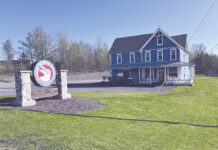Epistemology is what we on the farm called “a $10 word.” At $10, though, it’s underpriced because epistemology — the study of what we believe, what is true, and the evidence we have to justify that truth and belief — covers a lot of ground. In short, epistemology is the study of knowledge.
That topic sounds drier than last summer’s straw until you test it on yourself.
For example, is global warming real? How do you know? Are GMOs unsafe? What are your facts? Will soybean prices rally into spring? What’s your evidence?
That’s what I mean; easy answers evaporate when you’re required to supply hard evidence to prove what you believe is true.
There is no shallow end in the old epistemological pool. Wherever you jump in, the water’s deep.
Still, the “truth” you use to justify your answers and, say, the “truth” I might use to answer the same questions should not differ even though our “beliefs” very well could.
Facts, after all, are facts and if your evidence proves that my beliefs are either suspect or wrong, then your ideas, policy, and laws — your knowledge — is more than likely right and mine is more than likely wrong, and as such, and I need to alter my beliefs.
This is exactly the way it works on the farm and ranch every day. If one seed corn variety consistently out-yields another, we buy the winning seed, not the losing one. If one bull sires bigger calves that gain weight better than a second bull, we buy the better bull, not the worse one.
The reason is as clear as the corn and calves in front of us: knowledge — provably true beliefs — makes our lives, community and world better and more fulfilling.
My father had an oft-used phrase when someone’s facts matched his own farm-earned knowledge: “You better believe it,” he’d say with emphasis.
Dad wasn’t a philosopher — he was a dairy farmer — but he did hold truth, belief, and evidence almost on par with another trinity.
Sometimes, though, when pressed for time or caught off-guard, we use only part of our knowledge, usually the belief part (we call it our “gut”), to make judgments. Whether the choice turns out, good, bad or indifferent, it usually yields “evidence” that either reinforces our beliefs or changes them.
At least that’s the way it’s supposed to work.
Today, however, fact — evidence — has lost ground to its two knowledge partners, truth and belief. Without fact, knowledge quickly becomes dogma or, as the Oxford English Dictionary explains, the “arrogant declaration of opinion.”
Which is exactly what my brothers and I, Lutherans by birth, excelled at in daily school bus arguments with the Catholic neighbors. Both sides were strong in belief, weak on evidence, and void of truth, but that never stopped either of us from arrogantly declaring that some of us were ultimately headed upward while others held tickets southbound.
Today we are told that our politics are just as “tribal.” Maybe, but tribal doesn’t get at the true core of what has recently frozen politics and is now freezing government.
That core is today’s widening gap between what is fact-based truth and what is dogmatic belief. If facts are downplayed, disregarded or disparaged, knowledge — along with effective policy and functional government — is lost.
That’s not how we do things in rural America. Farmers and ranchers constantly ask questions, dig for more information, and share new ideas as they search for the best way — the best knowledge — to move their farms, ranches, and families forward.
As such, farmers and ranchers are everyday philosophers steeped in epistemology because they know that dogma, or belief without evidence, won’t raise a crop, wean a calf or repay the banker.
That takes hard knowledge and hard work; you better believe it.













